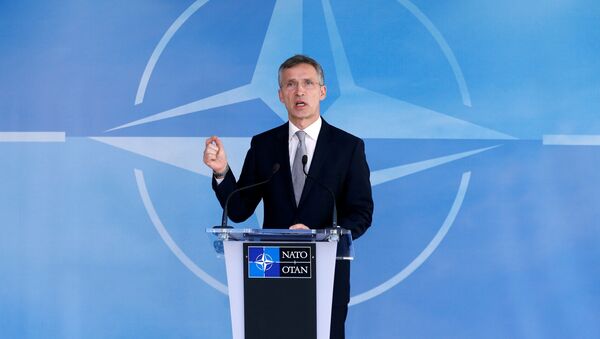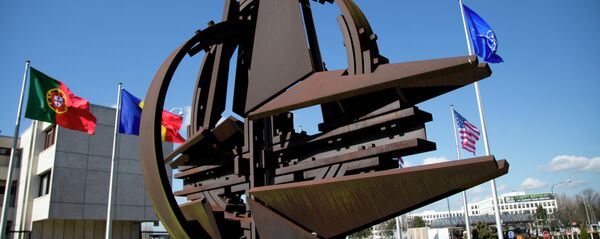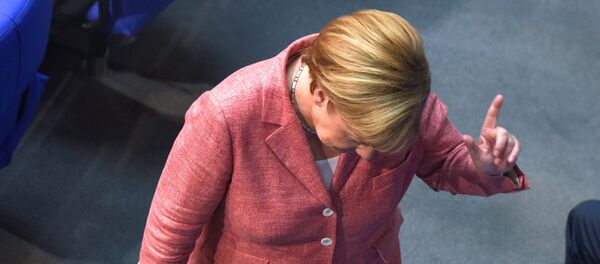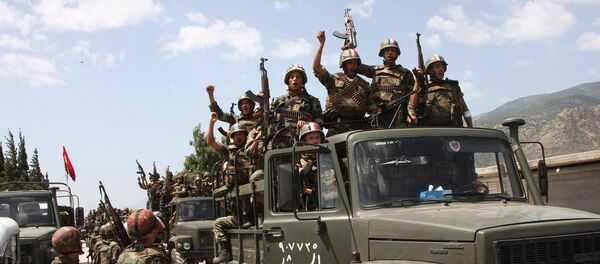In a brief statement published on his official Twitter account on Friday, Stoltenberg announced that he had a "good talk" with Trump, both officials "underlin[ing] the enduring importance of NATO and increased defense spending."
Good talk with US President-elect @realDonaldTrump. We both underlined the enduring importance of #NATO and increased defence spending.
— Jens Stoltenberg (@jensstoltenberg) 18 ноября 2016 г.
The NATO head's comments amounted to the latest effort to calm the alliance's bureaucracy and the US's European allies, who were sent reeling into a spiral of uncertainty and despair following Trump's surprise election victory earlier this month.
Trump has also slammed NATO as an "obsolete" institution going back to the Cold War, which simply wasn't doing the job of defending Europe and the United States from the real threats posed by Islamist extremism. During the race, European officials called Trump's comments "dangerous and irresponsible," with Stoltenberg himself issuing a rebuff to Trump, despite saying that he 'didn't want to interfere' in the US election.
In the spring, President Obama met Stoltenberg personally to reassure him of US security commitments after Trump said on the camping trail that "it's possible that we're going to have to let NATO go."
According to American University of International Service Dean James Goldgeier, NATO's policy toward Russia can and will change if the President-elect keeps his election pledges. Speaking to Sputnik, the academic stressed that "they [NATO] can't afford to try to take a hard line against 'Russian aggression' if the United States is not there." Put another way, if the alliance's European members do not believe that Washington will be there to support them, NATO will have to rethink and change its relationship with its eastern neighbor.
Stoltenberg seemed to confirm as much on Friday. Speaking at a security conference in Germany, the official walked back on some earlier rhetoric, stressing that Russia was NATO's "biggest neighbor," "is here to stay," and cannot be isolated. Last week, German media reported that NATO's rhetoric toward Moscow had already softened following Trump's election, in spite of President Obama's efforts to keep the pressure on.
Nevertheless, Goldgeier also stressed that the President-elect's options to maneuver will be somewhat limited. Even if Trump wished to withdraw support from NATO, he would meet significant resistance from his own party in Congress and even among his own advisors, the academic noted.
Last week, German magazine Der Spiegel reported that Brussels should not exclude the possibility that at least some US troops in Europe could be withdrawn under President Trump as the rethinks alliance priorities regarding threats to global security.
In a recent article for Foreign Policy magazine, respected US military consultant and historian Edward Luttwak urged media and political elites to stop with the "hysterical" attitudes over the future of US foreign policy under Trump. "Despite the hand-wringing of the Trumpophobes, there's a lot of rationality and realism behind the President-elect's evolving strategy," Luttwak stressed.
As far as Russia was concerned, the expert explained that "If Trump's Russia policy," which promises improved relations, "is successful, it will reduce tensions and thus [eliminate] the need to send more US forces to Europe to strengthen the NATO alliance."






